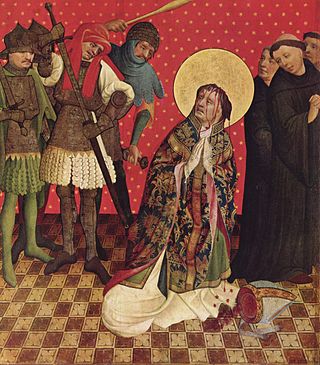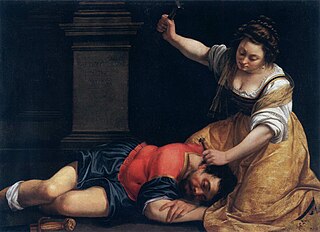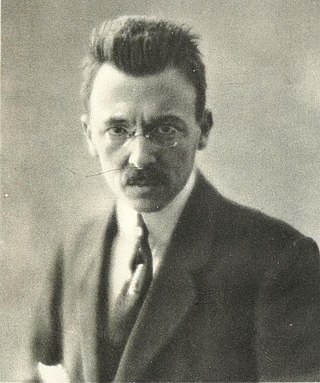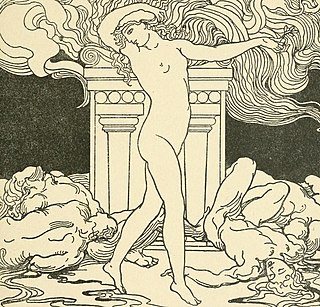
Electra, also spelt Elektra, is one of the most popular mythological characters in tragedies. She is the main character in two Greek tragedies, Electra by Sophocles and Electra by Euripides. She is also the central figure in plays by Aeschylus, Alfieri, Voltaire, Hofmannsthal, and Eugene O'Neill. She is a vengeful soul in The Libation Bearers, the second play of Aeschylus' Oresteia trilogy. She plans out an attack with her brother to kill their mother, Clytemnestra.

In Greek mythology, Phaedra was a Cretan princess. Her name derives from the Greek word φαιδρός, which means "bright". According to legend, she was the daughter of Minos and Pasiphaë, and the wife of Theseus. Phaedra fell in love with her stepson Hippolytus. After he rejected her advances, she accused him of trying to rape her, causing Theseus to pray to Poseidon to kill Hippolytus, and then she killed herself.
Reginald Smith Brindle was a British composer and writer.

Ildebrando Pizzetti was an Italian composer of classical music, musicologist, and music critic.

Oreste is an opera by George Frideric Handel in three acts. The libretto was anonymously adapted from Giangualberto Barlocci’s L’Oreste, which was in turn adapted from Euripides' Iphigeneia in Tauris.

Cesare Valletti was an Italian operatic tenor, one of the leading tenore di grazia of the postwar era.

Nicola Rossi-Lemeni, was a basso opera singer of mixed Italian-Russian parentage.

Europa riconosciuta is an opera in two acts by Antonio Salieri, designated as a dramma per musica, set to an Italian libretto by Mattia Verazi.

Rosanna Carteri was an Italian soprano, primarily active from the 1950s through the mid 1960s. After her debut in Rome at age 19 as Elsa in Wagner's Lohengrin, she appeared in leading roles internationally, based at La Scala in Milan. She participated in world premieres such as the title role of Pizzetti's Ifigenia.

Assassinio nella cattedrale is an opera in two acts and an intermezzo by the Italian composer Ildebrando Pizzetti. The libretto is an adaptation by the composer of an Italian translation of T. S. Eliot's 1935 play Murder in the Cathedral. The opera was first performed at La Scala, Milan, on 1 March 1958. The opera was performed for the first time in Canada the following year at the Montreal Festivals.

Dèbora e Jaéle is an opera in three acts composed by Ildebrando Pizzetti who also wrote the libretto. The libretto is based on the story of Deborah and Jael from the Book of Judges in the Bible. However, it differs in several ways from the traditional Biblical account, primarily in the motivations of its characters and the relationships between them. The opera was first performed at La Scala, Milan on 16 December 1922.
Mario Zafred was an Italian composer, music critic, and opera director. He also served as the president of various Italian music conservatories including the Accademia Nazionale di Santa Cecilia.

Giulia Recli was an Italian composer and essayist.

Riccardo Pick-Mangiagalli was an Italian composer and pianist of Czech birth.

Lo straniero is an opera in two acts composed by Ildebrando Pizzetti, who also wrote the libretto. An original story with characters from the Old Testament, it is the third work in Pizzetti's trilogy on the themes of redemption and the virtue of love. Although it did not receive its premiere until 1930, Pizzetti had begun the project several years earlier. He began the libretto in 1922 and completed it in 1923. The composition of the music was completed in 1925. The other two works in the trilogy are Dèbora e Jaéle which premiered in 1922 and Fra Gherardo which premiered in 1928.

Fra Gherardo is an opera in three acts composed by Ildebrando Pizzetti who also wrote the libretto. Set in Parma at the end of the 13th century, the opera's story is based on the life and death of Gherardino Segalello as chronicled by Salimbene of Parma. Pizzetti composed the work, his fifth opera, between 1925 and 1927. The world premiere took place at La Scala, Milan on 16 May 1928 in a performance conducted by Arturo Toscanini with Antonin Trantoul and Florica Cristoforeanu in the leading roles of Fra Gherardo and Mariola.

Fedra is an opera in three acts composed by Ildebrando Pizzetti to an Italian-language libretto which he abridged from the text of Gabriele D'Annunzio's 1909 tragedy of the same name. The play and the opera recount the story of the Greek mythological figure Phaedra and her unrequited love for her stepson Hippolytus. It premiered on 20 March 1915 at La Scala in Milan conducted by Gino Marinuzzi.

Ifigenia is a tragic opera in one act by Ildebrando Pizzetti, who also wrote the libretto with Alberto Perrini. The libretto is in Italian language. It was premiered as a radio broadcast from RAI Auditorium in Turin on 3 October 1950. In the same year, it received the first prize of Prix Italia radio annual award, that was held in Turin. The opera made its theatrical debut at Teatro Comunale in Florence on 9 May 1951 during the 14th Maggio Musicale Fiorentino festival.
L’oro is an opera in three acts composed by Ildebrando Pizzetti who also wrote the libretto in Italian language. It premiered at La Scala in Milan on 2 January 1947, conducted by Pizzeti himself.
Dino Dondi was an Italian operatic baritone.














